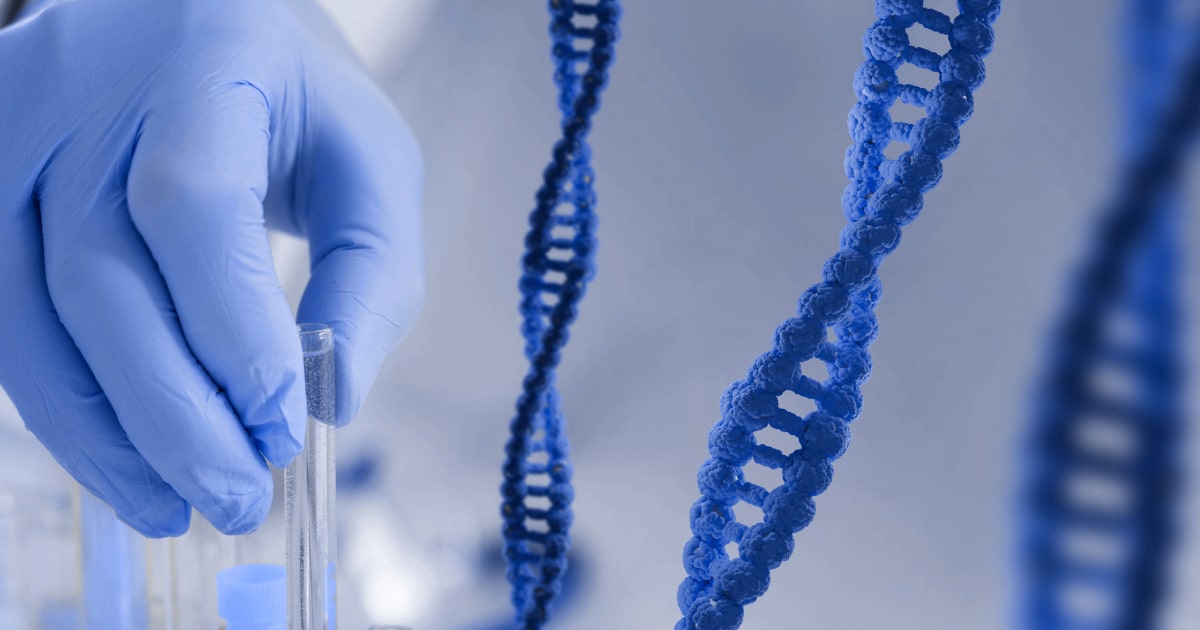
Expert Reviewed By: Dr. Brandon Colby MD
Skeletal Muscle Glycogen Content and Metabolism Quantitative Trait Locus (QTL) is a complex genetic trait that influences the metabolism and quality of skeletal muscle in various species. Understanding the genetic factors behind this trait is essential for improving meat quality, nutritional value, and animal health. In this article, we will discuss the role of genetic testing in diagnosing and understanding this trait, as well as its potential uses in improving animal breeding and management practices.
Understanding Skeletal Muscle Glycogen Content and Metabolism QTL
Research has identified several genetic factors that influence skeletal muscle glycogen content and metabolism. These include:
1. PHKG1 Splice Mutation in Pigs
A mutation in the PHKG1 gene has been found to cause high glycogen content and low meat quality in pig skeletal muscle. This mutation affects glucose metabolism and meat quality in Duroc-related pigs, leading to increased glycogen content and reduced meat quality.
2. ACSL1 Gene Variant in Bovine Skeletal Muscle
A gene variant in the ACSL1 gene has been found to be significantly associated with the content of specific fatty acid fractions in bovine skeletal muscle. This impacts meat quality and nutritional value, as it influences the composition of polyunsaturated fatty acids in the muscle tissue.
3. Multiple QTLs Affecting Growth in Chickens
Genome scans in chicken lines with divergent growth rates have identified multiple QTLs affecting growth and correlated traits. This research provides insights into genetic factors influencing growth, which can have implications for skeletal muscle glycogen content and metabolism.
4. PRKAG3 Genetic Variability in Non-Diabetic Whites
Genetic variability in the PRKAG3 gene has been found to be associated with higher serum LDL-cholesterol and apolipoprotein B-100 levels in non-diabetic whites. This impacts glucose and lipid metabolism, which can have implications for skeletal muscle glycogen content and metabolism.
Diagnosing Skeletal Muscle Glycogen Content and Metabolism QTL
Genetic testing is a powerful tool for diagnosing and understanding the genetic factors influencing skeletal muscle glycogen content and metabolism QTL. By analyzing an individual's DNA, researchers can identify the presence of specific gene mutations or variants that are associated with this trait. This information can be used to determine the risk of developing the trait, as well as to inform breeding and management practices to improve animal health and meat quality.
Using Genetic Testing for Skeletal Muscle Glycogen Content and Metabolism QTL
There are several potential uses for genetic testing in relation to skeletal muscle glycogen content and metabolism QTL, including:
1. Improving Animal Breeding Practices
By identifying animals with favorable genetic traits, breeders can make informed decisions about which animals to breed in order to produce offspring with improved muscle glycogen content and metabolism. This can ultimately lead to improved meat quality and nutritional value for consumers.
2. Personalizing Animal Management
Genetic testing can also be used to inform individualized animal management practices. For example, animals with specific genetic traits may require different diets or exercise regimens in order to optimize muscle glycogen content and metabolism. By tailoring management practices to the individual animal's genetic makeup, producers can improve overall animal health and productivity.
3. Identifying Potential Health Risks
Understanding the genetic factors influencing skeletal muscle glycogen content and metabolism QTL can also help identify potential health risks for animals. For example, animals with high glycogen content may be at increased risk for certain metabolic disorders. By identifying these risks, producers can implement preventative measures to protect animal health and well-being.
In conclusion, genetic testing is a powerful tool for understanding and diagnosing skeletal muscle glycogen content and metabolism QTL. By utilizing this technology, researchers and producers can work together to improve animal health, meat quality, and nutritional value, benefiting both animals and consumers alike.
About The Expert Reviewer
Dr. Brandon Colby MD is a US physician specializing in the personalized prevention of disease through the use of genomic technologies. He’s an expert in genetic testing, genetic analysis, and precision medicine. Dr. Colby is also the Founder of and the author of Outsmart Your Genes.
Dr. Colby holds an MD from the Mount Sinai School of Medicine, an MBA from Stanford University’s Graduate School of Business, and a degree in Genetics with Honors from the University of Michigan. He is an Affiliate Specialist of the American College of Medical Genetics and Genomics (ACMG), an Associate of the American College of Preventive Medicine (ACPM), and a member of the National Society of Genetic Counselors (NSGC)